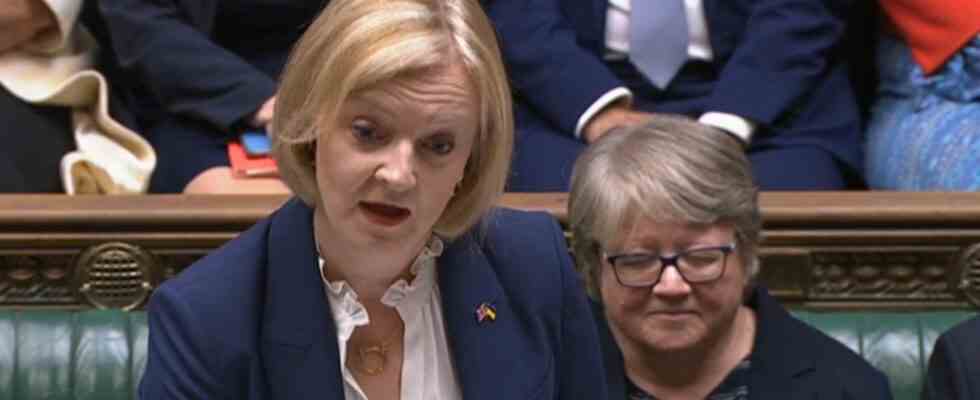Status: 07.09.2022 3:48 p.m
British Prime Minister Truss has asked MEPs questions for the first time. She wants to end the dispute with the EU over the Northern Ireland Protocol. In the energy crisis, she relies on more oil and gas from the North Sea – and on nuclear power.
The new British Prime Minister Liz Truss wants to end the ongoing dispute with the EU as a result of Brexit. The 47-year-old said at her first Question Time in Parliament in London that she was “determined” to settle the dispute over trade with Northern Ireland. She is striving for a negotiated solution.
The former Brexit opponent and current advocate for Britain’s exit from the EU supports changes to the Northern Ireland Protocol, which is part of the Brexit agreement between Brussels and London and which has been the subject of dispute for some time.
The Protocol Amendment Bill is currently going through the UK Parliament. Truss helped drive it forward as British Foreign Secretary.
Dispute over goods controls
In the protocol, London agreed to goods controls between Great Britain and Northern Ireland, which is a member of both the EU internal market and the British market. However, London sees this as unnecessary “barriers to trade”, wants to abolish most controls and exempt British traders for goods to Northern Ireland from the obligation to file EU customs declarations.
From the EU’s point of view, the British government wants to undermine parts of the protocol and is thus violating international law. The EU has therefore initiated proceedings against the British government.
Truss wants to present plan against energy crisis
The energy crisis was also a topic of question time: Truss wants to present a plan on Thursday. In Great Britain, too, the cost of electricity and gas for private households and companies has risen significantly as a result of the Ukraine war.
Truss called for her country to pump more oil and gas in the North Sea and invest more in nuclear energy as a measure to combat rising energy costs.
In addition, she announced quick help, for example in the form of tax breaks. However, she ruled out an increased excess profit tax for large energy companies to finance the measures.
Opposition leader Keir Starmer accused her of wanting to burden taxpayers with the cost of freezing the energy price cap.

